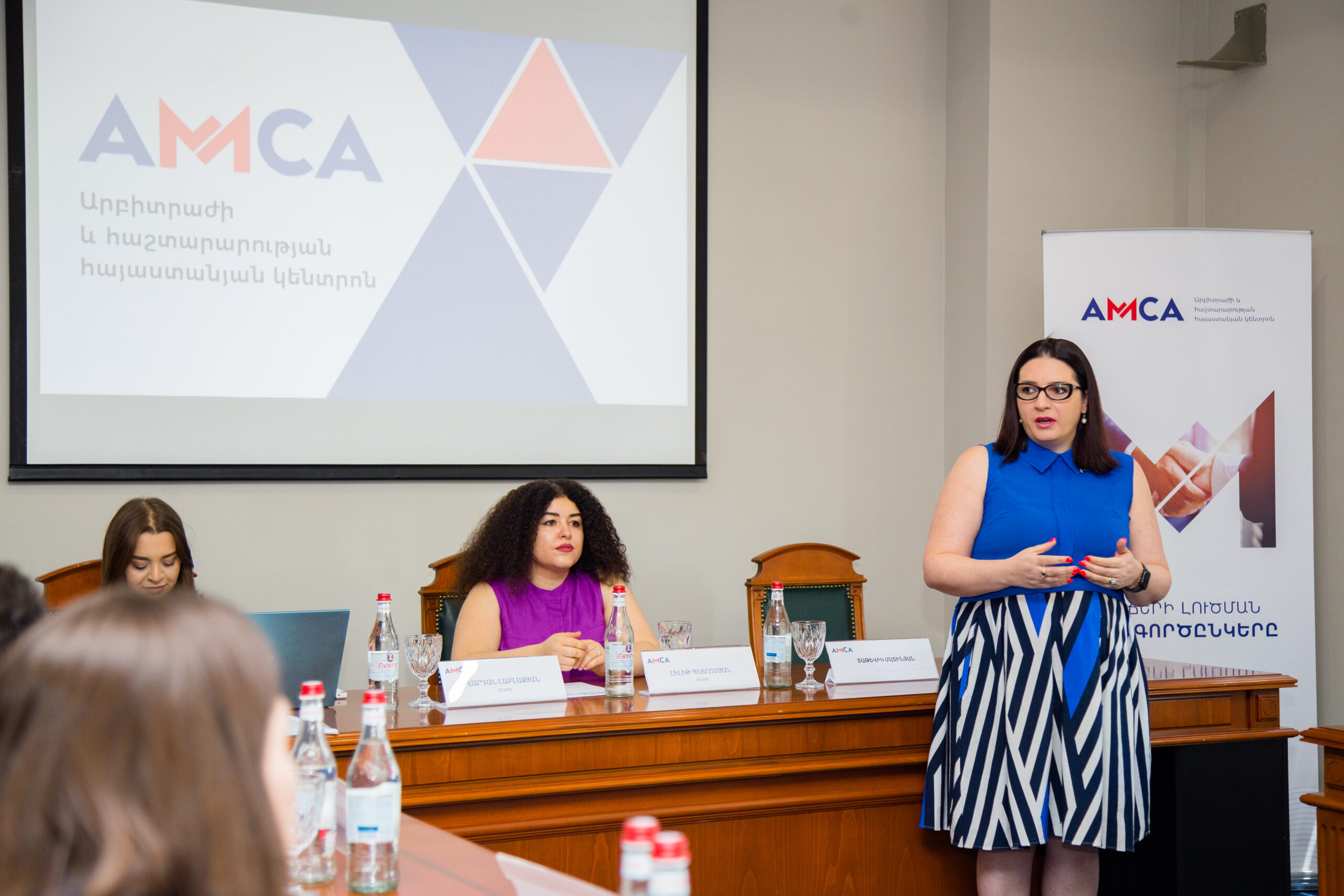The Arbitration and Mediation Center of Armenia (AMCA) has conducted a training for advocates and arbitrators of the Center. The purpose of the event was to discuss the arbitrator’s role, code of conduct, responsibilities, and the entire process of conducting arbitration proceedings. Tatevik Matinyan, Director of the AMCA, gave an opening speech . “Such events enable specialists not only to acquire new knowledge, but also to share their experience and create new opportunities for new cooperation, contributing to the development of the culture of arbitration in Armenia,” noted Tatevik Matinyan.
In the first part of the day, detailed information on the role and responsibilities of the arbitrator, the rules of conduct, the AMCA Arbitration Rules, grounds for challenging the arbitrator were presented. And in the second part, Hayk Kupelyants, a member of the Arbitration Council of AMCA, lecturer at King’s College London, presented the conduct of the arbitration case, the details of the procedure. The basis of preparation, handling of the arbitration session, evaluation of evidence and drafting of the arbitration award were also discussed. “Arbitration and mediation processes are important in the ADR system, and our goal is to provide specialists with the necessary knowledge and skills so that they can effectively resolve disputes,” Hayk Kupelyants said.
The start of the second day of the training was given by Lilit Petrosyan, Deputy Director of AMCA, who presented the details of the conduct of arbitration proceedings based on the Arbitration Rules of AMCA. She referred to the stages of the arbitration proceedings, the actions performed by the arbitrators and the Center’s role in those stages, as well as the drafting of an arbitration award that will not be subject to annulment. Arbitration forms developed by AMCA, such as a model Protocol of Procedure, Arbitral award and other documents were also presented and discussed. In the second part of the day, the participants had the opportunity to discuss several practical situations related to the validity of the arbitration agreement, the scope of issues subject to arbitration in RA, the grounds for annulment of the arbitration award and other issues. This course became a platform for professionals to acquire new skills, exchange experience and form valuable collaborations.
The event contributed to the development and modernization of professional capacities in the field of arbitration, which will greatly increase the quality and efficiency of the field’s practice.
